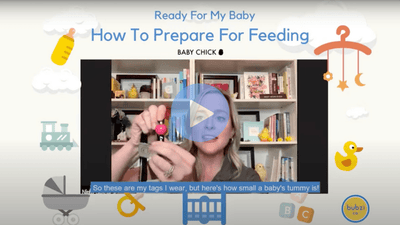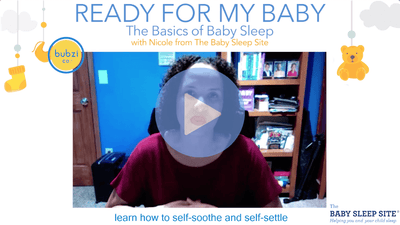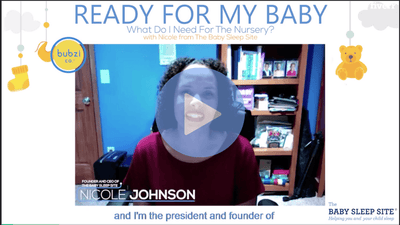Until your baby learns how to talk, crying will be his or her primary form of communication. As a parent it can be unnerving to hear your baby cry, especially when you don’t know why!
Many parents feel responsible and sometimes even guilty when they struggle to soothe their baby’s tears.
Fortunately, there are certain indicators to look for to better understand why your baby is crying and how you can help calm him or her.
The meaning of your newborn's cries: 5 Ways to Soothe Baby

1. Baby Cries Because Of Fear
If your baby’s crying sounds more screechy than usual, he or she may be frightened. Pay attention to your baby’s face and look for signs of panic or uneasiness.
Try rocking or holding the baby to soothe him or her.

2. Baby Cries Because Of Exhaustion
A tired baby’s cries tend to start out slowly at a lower pitch before increasing in volume and intensity.
This type of crying also tends to be associated with eye rubbing and other movements where the baby reaches for his or her face. When your baby hits the point of exhaustion, it becomes much more difficult to soothe him or her to sleep.
This cry can be hard to distinguish from cries of hunger, so you may also want to try feeding your baby if all else fails.
MORE TIPS FOR NEW MOMS: 6 Trusted Techniques New Moms Can Try To Get Baby To Sleep

3. Baby Cries Because Of Gas or Colic Issues
When your baby experiences indigestion or gas, it can be very uncomfortable for him or her. Babies usually cry in these instances to express their discomfort in hopes that their mom or dad will soothe them.
If your baby is feeling gassy, you may be able to recognize high intensity, high volume rhythmic patterns. This will usually last until the gas passes.
If you notice your baby raising its legs, arching its back, or fidgeting, it is likely your baby is experiencing discomfort caused by gas. It is usually best to keep the baby lying flat to allow gas to pass more quickly and comfortably.

4. Baby Cries Because Of Hunger
When your baby is hungry, his or her cries will likely sound intense and highly rhythmic. This type of crying should be handled right away by feeding the baby.
Waiting until your baby cries to indicate hunger is not a good idea, as it takes longer soothe a hungry baby. Other indicators that your baby may be hungry include gnawing at his or her hands or attempting to peck at mom’s breasts.
5. Baby Cries Because Of Pain or Discomfort
Babies can be troubled by things that may be difficult for parents to spot. This include anything ranging from a scratchy blanket to a stuffy nose.
If you are truly at a loss as to why your baby is crying and have used other methods of soothing your baby with no success, try looking around the baby’s environment to see what could possibly be upsetting him or her.
Check that all blankets are comfortable, and that there is nothing in the baby’s crib that does not belong there. Notice your baby’s breathing patterns, and make sure his or her nose is clear.
If you baby seems stuffy, try using a nasal aspirator to clear his or her nostrils. A humidifier is helpful as well and the noise it emits may also act as white noise to help ease your baby back to sleep.
MORE TIPS FOR NEW MOMS: Should You Use A Nasal Aspirator?
Crying is your baby’s first and only form of communication, especially as a newborn. While it might seem like your infant is crying for no reason, there’s a good chance they are trying to tell you something. It might take you a few different tries to figure out the meaning of baby’s cry but once you do, you’ll have a better idea of how to calm and soothe your little one. Whether it’s rocking them, feeding them or using a tool like Bubzi Co.’s Premium Baby Nasal Aspirator, you’ll figure out how to stop those tears from running down your little one’s face – leaving you both feeling better!

Photocredit: Bigstock, Pixabay








